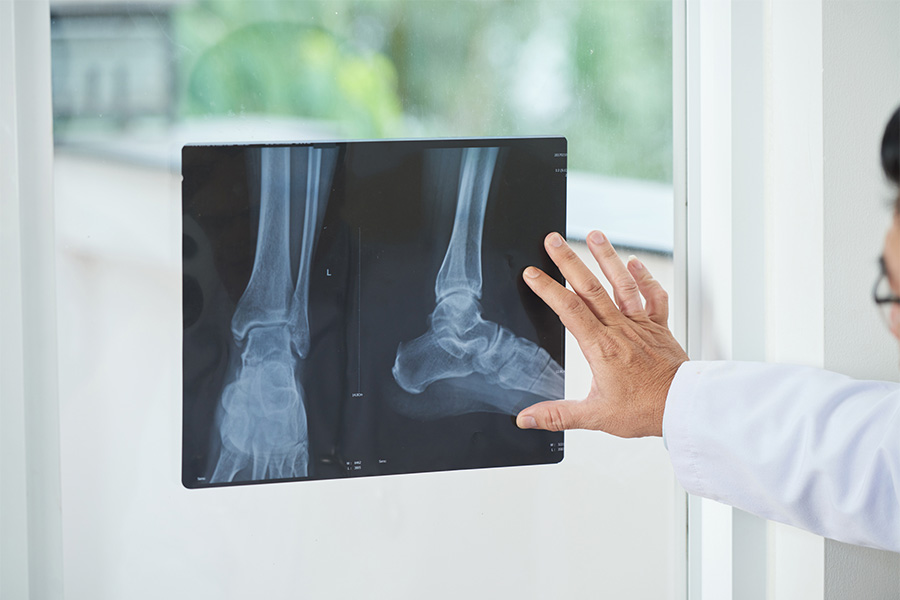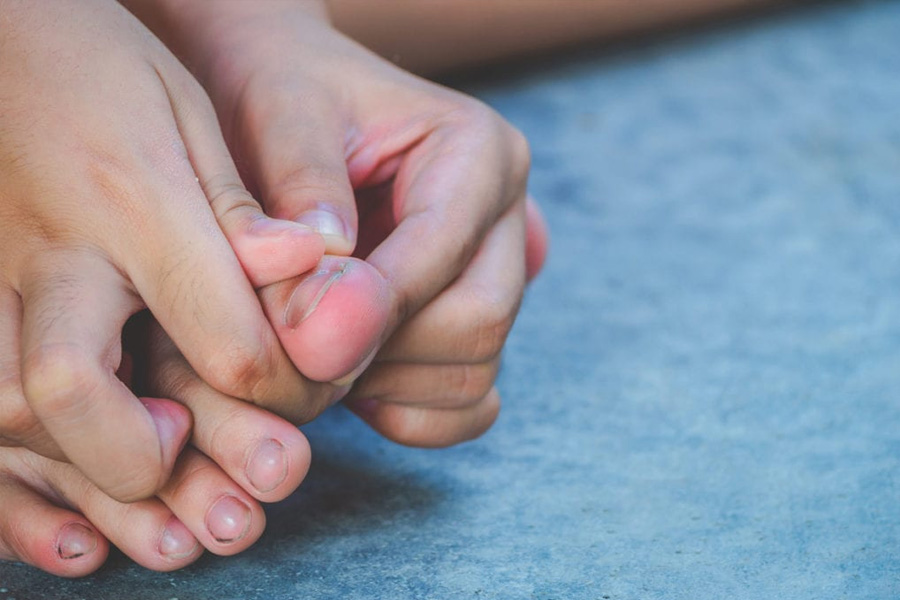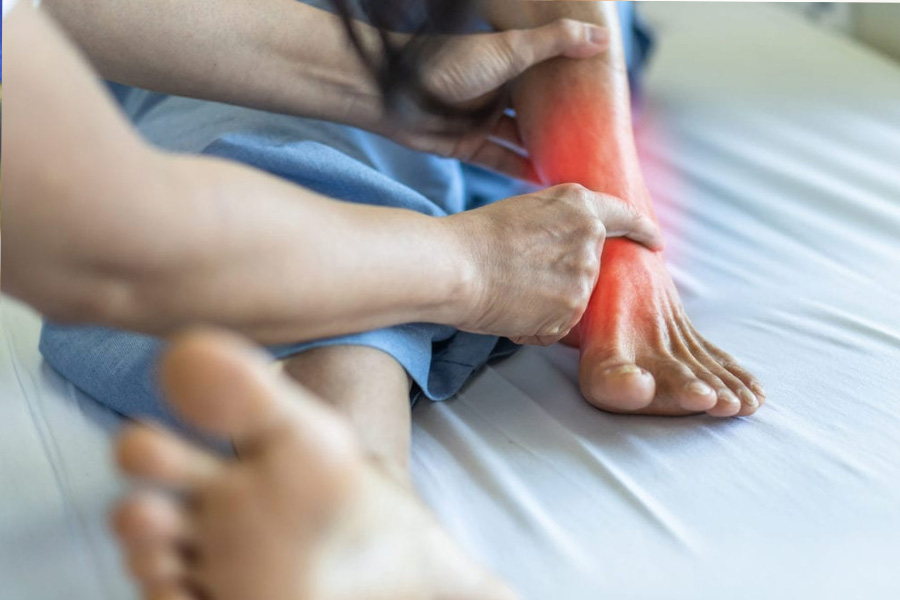Heel pain is a common foot problem that can be caused by a number of different factors. Some of these factors include excessive exercise, exercising on hard surfaces, or wearing unsupportive shoes. It can often be treated with rest and self-care at home. However, if the pain becomes worse or fails to improve, further investigation by a foot specialist is recommended.
Causes of Heel Pain
Common causes of heel pain include plantar fasciitis and Achilles tendinitis. Plantar fasciitis is a condition that causes pain beneath the heel. It is caused by inflammation of the plantar fascia (a ligament at the bottom of the foot). Pain is often worse when walking after resting or sleeping and it may be difficult to raise the toes of the affected foot. It can be caused by exercising with a tight calf or heel, overstretching the sole of the foot during exercise, by increasing your exercise level too fast, being overweight, or wearing shoes with little support or cushioning.
Achilles tendonitis is pain that occurs just behind the heel, where the Achilles tendon connects to the heel bone. It occurs when the Achilles tendon becomes irritated and inflamed with overuse and degeneration. A sudden increase in exercise and tight calf muscles can make it more likely for Achilles tendonitis to occur.
Heel spurs are another potential source of heel pain which are small calcium deposits that cause a bony protrusion at the bottom of the heel bone. They are often caused by plantar fasciitis.
Heel pain, particularly if it affects the inner or outer side of the heel and foot, may be caused by other factors such as arthritis, infection, an autoimmune disorder, trauma, or a neurological problem that may require further investigation.
Self-Care for Heel Pain
Rest
In order to reduce pain, you need to lessen or even stop the activities that aggravate symptoms and make pain worse. Rest your feet as much as possible for a few days, particularly if they are aching. High impact exercises such as running can make heel pain worse. Switch to lower impact activities to reduce aggravating symptoms such as cross training exercises (biking, swimming, or elliptical exercise) which put a lot less stress on the feet and Achilles tendons and can be a great alternative to help you stay active.
Ice
Using an ice pack can help to reduce swelling, inflammation, and pain. Ice should be applied regularly throughout the day (every 2-3 hours) but for no longer than 20 minutes at a time. It should be stopped earlier if the area begins to go numb. Always wrap the ice pack in a towel or thin cloth to protect your skin from frost bite and ice burn injuries. Rolling your foot over a cold or frozen water bottle can be an effective way to sooth plantar fasciitis pain.
Medication
Over-the-counter pain relief medication can help to ease painful symptoms and reduce swelling. Non-steroidal anti-inflammatory medication (NSAIDs), such as ibuprofen and naproxen, can reduce pain and swelling, but it can affect the healing process in some conditions so should only be considered for use 48 hours after the injury occurred.
Exercise
Heel pain can be aggravated by tight muscles in the feet and calves. Gentle stretching exercises can help to relieve pain and tightness.
Calf stretch – Stand facing a wall with one foot in front of the other, front knee slightly bent. Keep the back knee straight with the heel on the ground and lean toward the wall. You should feel the stretch along the calf of your back leg. Hold for 10 seconds and relax and repeat 20 times for each foot.
Plantar fascia stretch – In a seated position, cross your affected foot over the knee of the other leg. Grasp your toes and gently move them upwards to stretch the plantar fascia. Hold for 10 seconds and then repeat 20 times. This exercise is best in the morning before walking.
If self-care does not successfully treat heel pain, other treatment modalities may be required depending on the cause of your heel pain. These can include physical therapy, orthotics, injections, properly fitted shoes, and shock wave therapy. Surgery may be recommended in severe cases to relieve pressure from a nerve, remove a heel spur, or treat an inflamed tendon.
Specialists in Heel Pain in Cincinnati, Ohio
If you are experiencing persistent heel pain, consult the expert foot specialists at Cincinnati Foot & Ankle Care for the comprehensive foot care you need. To arrange a consultation with one of our podiatrists, call us today at the location nearest to you to schedule an appointment or use our convenient online form.
Share

Surgeons can provide both surgical and nonsurgical care.




